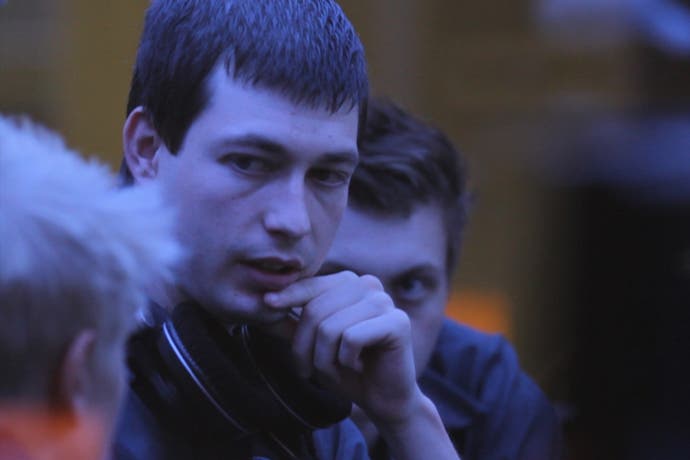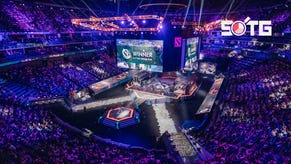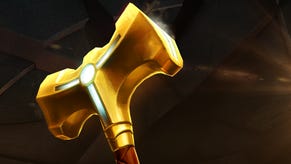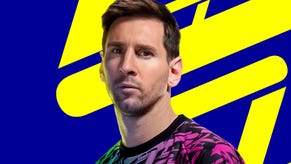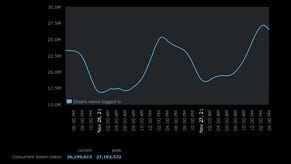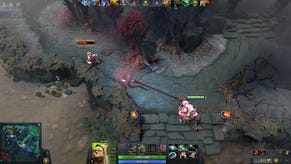Free to Play film review
Valve's Dota 2 doc humanises eSports stars, but only hints at the real story.
Earlier this year I wrote about a Gran Turismo film produced by Sony, and now we have a movie about the competitive gaming phenomenon Dota 2 made and distributed by its creator, Valve. This is typical of the self-sufficient Seattle outfit, which always prefers to do things its own way; this is the studio that built its own digital distribution network rather than trust anyone else to do it, after all. But it's also part of a wider trend. There's quite a lot of documentary film being made about gaming at the moment, but a troubling amount of it is commissioned and bankrolled by games companies themselves, or by the gaming community on Kickstarter. Most of the projects are well-meaning and made with love, but they can't help but carry an agenda. They come not to examine gaming, but to praise it. As entertaining as these films can be, by default, they aren't real journalism.
In the case of Free to Play, Valve's agenda does at least extend beyond making its game look good (although animated scenes and specially reconstructed game footage make the matches far more attractive and exciting to watch than Dota 2 ever could be, to an uninitiate at least). The film profiles three top Dota players - the Ukrainian Danil "Dendi" Ishutin, the American Clinton "Fear" Loomis and Benedict "hyhy" Lim from Singapore - and follows them through the International tournament Valve hosted in Cologne in 2011. In doing so, it seeks to humanise the players and legitimise the world of eSports, which despite its massive popularity remains an insular and impenetrable demi-monde outside its east Asian heartlands - and which is still dogged by stories of corruption and exploitation.
As far as turning the players into human heroes goes, Free to Play is a big success. The three young men are awkward, charming and vulnerable, and the film fleshes them out with clear-eyed empathy and just the right amount of sentiment. It turns the image of the professional gamer from that of a taciturn, spotty, sporadically aggressive teen into something a lot less alienating to those outside the scene. For Ishutin, gaming is a refuge after a personal tragedy, a private place to rebuild something he's lost. Lim pines for an estranged ex-girlfriend, another Dota player, whom he hopes to win back with success in the tournament, as well as lifting the burden of his family's disappointment in him. Loomis is a classic underdog - "the Rocky Balboa of Dota", according to a friend - playing far from his European team-mates in rural Oregon, his old CRT monitor propped up on books on a desk he salvaged from scrap.
It's a typical sports movie, in a sense. Demons are wrestled with, rags become riches, dreams are made and dashed. A villain is set up, in the form of the formidable and inscrutable Chinese team, Ehome. The matches are portrayed with little nuance - this is not a film for the Dota aficionado - but rather as a stage for grand drama. It's effective and even thrilling at points, if conventional stuff.
Free to Play also has something in common with the popular documentary genre of quirky competition exemplified by films like King of Kong, which so memorably skewered the subculture of classic arcade gaming, or Sounds Like Teen Spirit, an astounding look at the dark world of junior Eurovision (I cannot recommend this film highly enough, by the way). Like those films it finds truth in the competitors' contexts, their families in particular. Siblings and parents are revealingly interviewed, and there's a lovely scene of Ishutin, a mercurial genius of the mouse and keyboard, watching his mother play piano, mimicking her playing with his flickering fingers. Unlike those films, though, Free to Play lacks the distance from its subject to find something meaningful to say about it or to find wider meaning in it.
There is a much bigger and more compelling story to tell about eSports which Free to Play only hints at. Much is made of the transformative nature, for both the players and the eSports scene in general, of the competition's prize fund: an unheard-of $1.6 million, of which a cool million went to the winning team. The 2011 International, though a long time ago in eSports terms, was certainly a key moment in the history of eSports. It was a statement from Valve about how seriously it took Dota 2 and its intent to elevate the status of eSports in the West.
"It's all about the players" is the message, but no fan of traditional sports would be so naive as to believe that, so why should we?
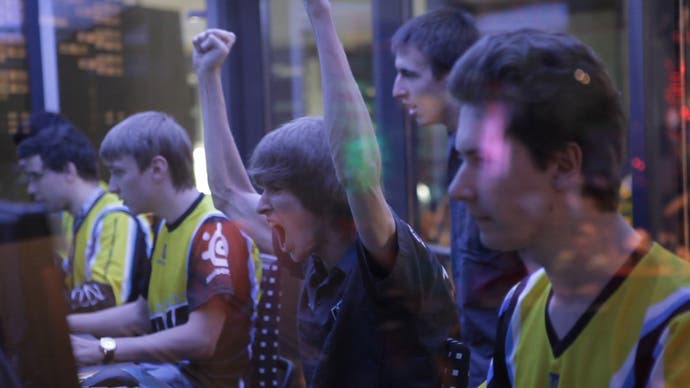
Yet because this is Valve's film, the forces working behind the scenes at this moment go completely unexamined. It was part of an effort - still underway at Valve and the other prominent studios in this sector, Blizzard and Riot Games - to get the unruly and often unsavoury world of eSports under control by establishing hegemony over the big tournaments. That's actually not a bad message for Valve to be sending, but it's deemed too sensitive and big-picture for this strictly personal film. Perhaps the biggest problem with the film's origin is that the most prominent missing voice is Valve's own - the company fields no interviewees. "It's all about the players" is the message, but no fan of traditional sports would be so naive as to believe that, so why should we?
We get a fleeting glimpse of another big issue: one which Valve's big prize pots don't solve, indeed which they may make worse. One of the talking heads, Jeremy Lin - an NBA athlete and Dota enthusiast - notes that professional eSports players' salaries are usually not living wages; effectively, if you don't win, you don't get paid. This seems like a critical issue for the sustainability of eSports as a whole, especially when players are deemed uncompetitive over the age of 26. Yet as a filmmaker, Valve is either unwilling or unable to go into it in any further detail.
Instead, the thrust of the film is that success at the International means more to the three young men than just money. It's about legitimacy, acceptance, proof to their sceptical parents that playing video games isn't just a way for kids to waste time - it's a real sport for real men. In this they are avatars for eSports as a whole, striving to be taken seriously, to grow up. The end of the film shows them healed and transformed by the competition, while interviewees take eSports' rise to the mainstream as a fait accompli. But if that's going to happen - if mum and dad are going to approve and understand and encourage, if Dota really is going to be bigger than football - the eSports world is going to have to subject itself to much closer scrutiny than this pleasant fluff. And that can only come from the outside.
You can watch Free to Play for free on YouTube or download a copy with commentary tracks and other extras from Steam.
